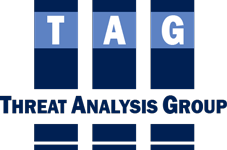When evaluating security, consultants apply a spectrum of guidance when developing recommendations. The spectrum begins at one end with the security consultant’s professional opinion which is often based on years of education, training, and experience. Professional opinion, while valuable to both clients and courts (when submitted as expert testimony), is challenging to quantify and difficult to reconcile with other consultants opinions. This is not to say that either is wrong, but rather that professional opinions may vary based on experiences.
From professional opinion we move along the spectrum to industry and community best practices. These are based on the consultant’s previous experience in similar facilities and applications. Because this previous experience is concrete and can sometimes be documented, it may be useful. For facilities that use a proprietary security force, it is industry practice to have uniformed security officers (as opposed to security officers in street clothes). Community practice is specific to a geographic area. For example, the apartment complexes in one small area of a major city may also have perimeter fencing with pedestrian and vehicular access gates, while apartment complexes in another area of the city may not have perimeter access control. Consultants may also use industry research and studies, some of which may form the basis for the next item on the spectrum.
Next on the spectrum are industry guidelines. Organizations such as the International Association of Professional Security Consultants (IAPSC) and ASIS-International, through a consensus-based process, formulate these industry-specific guidelines that function as template for security professionals. Guidelines are suggested practices that are flexible and allow for customization based on unique variables. Because of the process by which guidelines are created and the sample size upon which they are based, they offer an even higher degree of credibility than best practices. However, these guidelines are not usually prescriptive for a particular property.
At the far end of the spectrum opposite are standards. Standards are requirements that must be met by any organization that falls under the umbrella of the standard-setting body. For example, the National Fire Protection Association (NFPA) is the national authority on fire, electrical, and building safety, and all property owners must meet the NFPA’s standards. It behooves any security consultant to become familiar with such standards because all clients will have to meet them, and doing so actually makes the consultant’s job easier because standards are uniform, easily defended, and virtually airtight.
Security consultants work diligently for years to build their credentials and increase their professional credibility, but they can ill afford to rest on their laurels and play them as a trump card. One’s expert opinion is important, but a true professional will seek to provide guidance that moves away from simple opinions and untested theories toward more reliable and defensible guidance. Experts will provide guidance that falls at all points on the spectrum, from professional opinion to industry best practices to guidelines to standards. Relying on standards is important, but today, there are few actual standards in the security industry.





